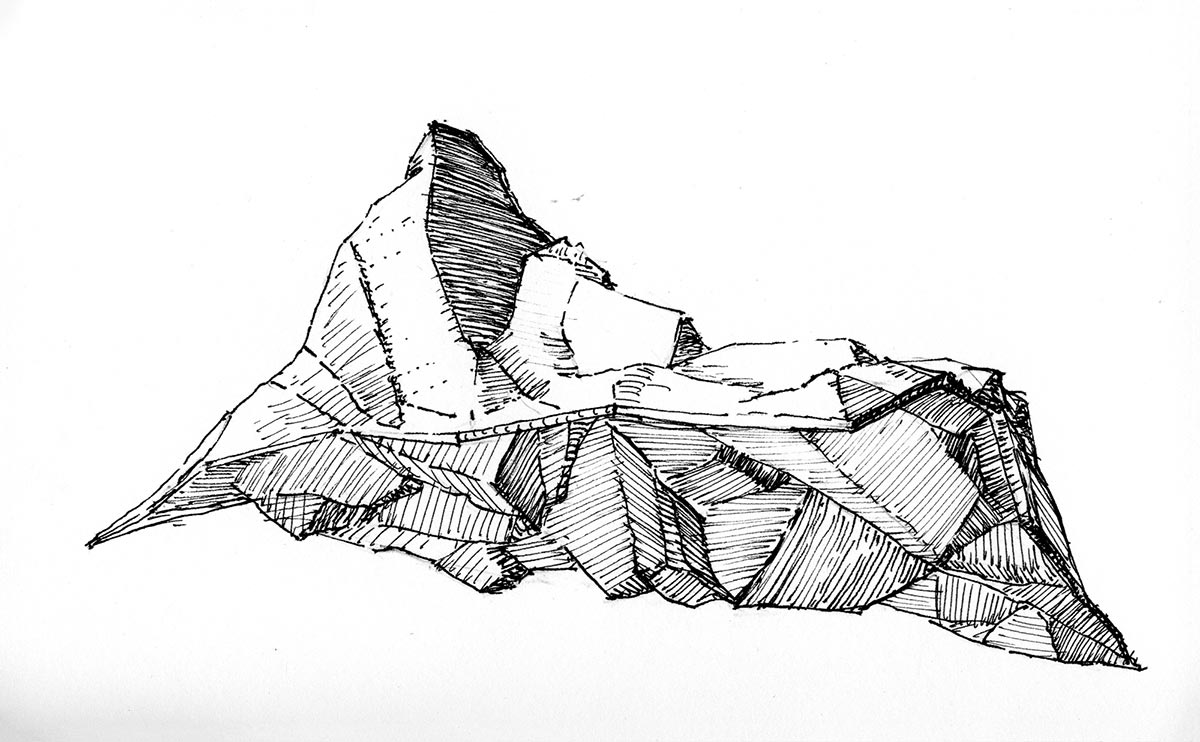Learning from Switzerland: the democratic braid

Democracy in Switzerland is fascinating. As a casual visitor to Switzerland — even if you stay for several weeks — you will doubtless find the country both charming and alarmingly close to the chocolate box cliché: the pastures are green, the cows do indeed all have bells, and the villages are as immaculate as they are pretty. The people are friendly, if a little reserved. However, if you stay longer, and especially if you get to know some Swiss people, you can start to see that the country has some intriguing characteristics. The following are reflections on the country that occurred to me during my four month residency at Atelier Mondial, Basel.
One characteristic that will be apparent to you even during a short stay is that Swiss people seem to be very fond of rules. In walking around Basel, for example, I noticed early on that pedestrians almost never cross at intersections until the walk sign lights up, even when there’s no traffic. I think I crossed once, and the unhappy stares from my fellow pedestrians was enough to tell me that I had transgressed. There are rules for seemingly everything: your rubbish must be in the correct bag size and it must have the appropriate label. You purchase these labels and there are penalties for not using them. Your recycling has to be carefully sorted: paper must not be mixed with cardboard, and the paper must be neatly wrapped in string. Again, I saw very little non-compliance, and I strongly suspect that the non-compliance I did see was not from the locals.
You might imagine that all this rule-following would be oppressive, and doubtless it would be, if you’re opposed to rules in general. I found the rules to generally be well considered, sensible and easy to follow, so for me it was not a problem (even if I sometimes became impatient waiting to cross an empty road).
A question of trust
A less obvious characteristic than the love of rules is that Switzerland has very high levels of trust. With time, you'll find both an extraordinarily high degree of personal trust and a high degree of trust in political institutions — notably, far higher than in other European countries. I found that this trust is both very apparent at a personal level, disarmingly so. My subjective experience is consistent with empirical studies: Switzerland has particularly high levels of trust, both in terms of interpersonal trust, and in terms of trust in political institutions. I find it interesting to note that Switzerland’s levels of political trust are higher than those of its neighbours: higher than northern Europe and far higher than southern Europe and France. There are good reasons to think that this is because of the distinctive qualities of Switzerland’s political processes and institutions.
The role of participatory democracy
In practice I found that Swiss people take a lot of pride in their democratic systems. I heard many complaints about particular political parties, or about political attitudes in other regions, but few, if any, negative remarks about the system per se.1 You’re perhaps aware that Switzerland makes good use of direct democracy in the form of referenda; I hadn’t realised just how deep this process runs in the country’s systems. As in Australia, constitutional changes require a referendum; unlike Australia, these changes can be popularly initiated. Referenda can also be requested for any change in a law. I won’t describe the systems further, but suffice it to say that Switzerland is profoundly democratic.
I think these three aspects — rule-following, high levels of trust, and deep democracy — are almost certainly interlinked and inter-dependent. In fact, my impression is they form a sort of braid. Rule-following enhances trust (you can rely on others to behave well); the rules are generally sensible, and both democratically established and modified (if a rule is stupid you can probably change it) so it makes sense to follow the rules; and so on. If levels of trust (say) were to decline, or if Switzerland were to somehow become less democratic, perhaps this would change.
With levels of trust in political institutions and democracy in decline throughout the world, I can’t help but feel strongly that we can learn from Switzerland and see that the cure to democracy’s ills is more democracy. Much more.
- You hear a lot of stories and jokes about the unfortunate consequences of being so democratic, such as the recent referendum on whether farmers should be prohibited from dehorning cows. (This was rejected.) But I heard no one suggest that the system itself was at fault.
